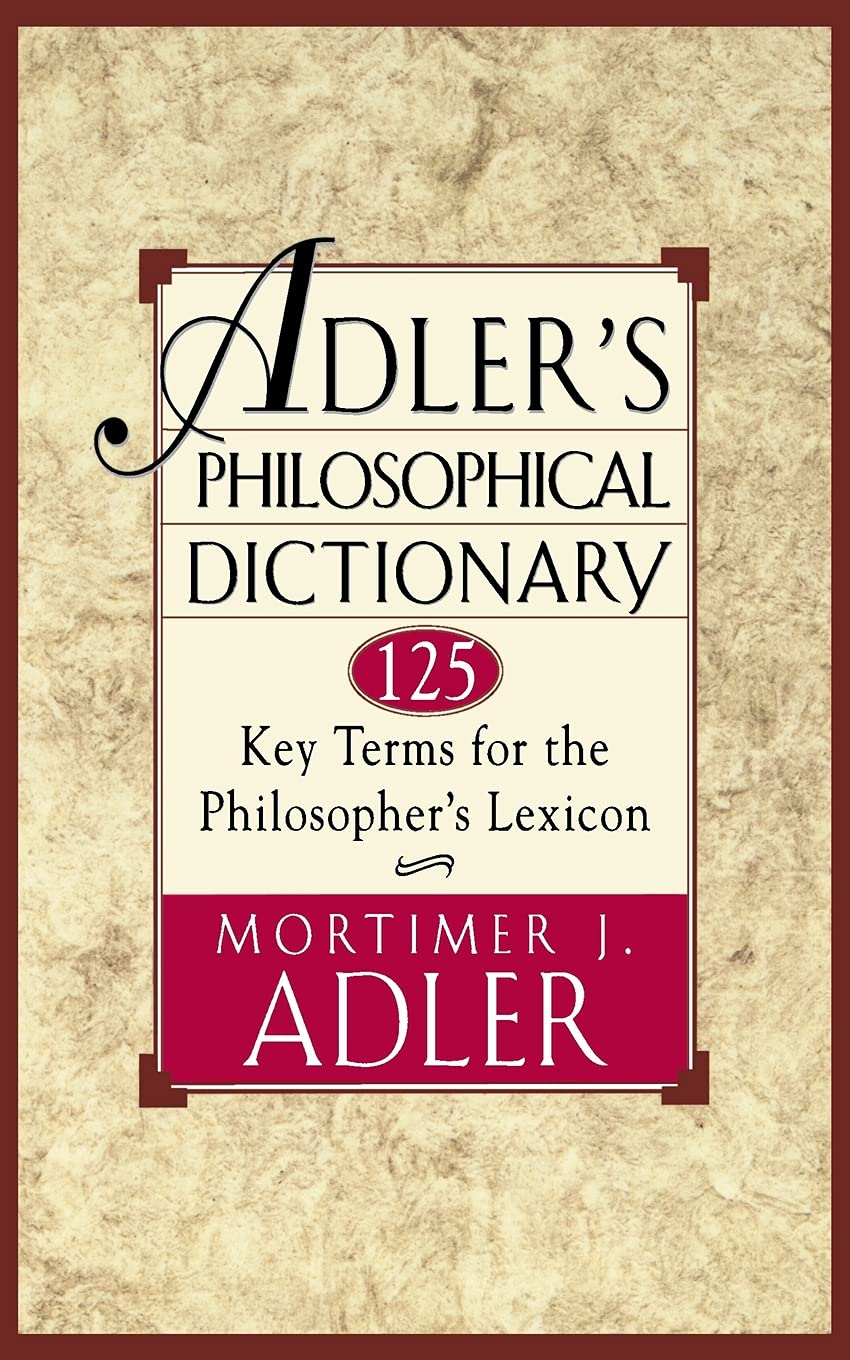

Full description not available
M**M
Five Stars
Thanks!
A**R
Five Stars
excellent
J**R
A summation of his views on philosophy, theology, and politics
Late in his career, Mortimer Adler produced this slim volume as a companion piece and summary of his previous works in philosophy. He defines 125 key philosophical terms, explaining how they are used correctly and the common errors people make about the terms. He also explains how those terms as ideas fit into his larger body of work, and indeed into the larger understanding of reality and human experience. Even though these are philosophical terms, the field of philosophy often touches upon or overlaps other fields, such as science, politics, and theology. His explanations of how they fit in with the other disciplines is insightful and helps the reader to understand Adler's larger world view (including his Christian faith). Occasionally the reader has to slow down or repeat a reading to get the nuances of Adler's definitions but the effort is well worth the reward. The book is barely 200 pages, so even a slow reading does not take a huge amount of time.Sample Text, from the entry on Continence and Incontinence (which is used very differently in philosophical circles than in common parlance):We cannot understand what it means to say that man is a rational animal without, at the same time, recognizing that a rational animal is a freak of nature. The nature of a rational animal is a mixture of incompatible elements. [p. 74]
J**L
Real definitions for the real world.
For the majority of humankind the world is a real place and we share common experiences. If you are one of the many who share this worldview than this dictionary will help you get a better feel for questions concerning everyday life. This is not a professional philosophers dictionary but an amateur one. We should all be amateur philosophers degreed or not.
B**R
Not at all what I expected from Adler
This book by Adler is for me a disappointment all around. When a book purports to be a "philosophical dictionary" but doesn't include in it's lexicon such philosophical terms as: substance, accidents, genus, positism, existentialism, phemenology et. al., it's of no use to me. Having said that, I suppose that the book might be of value to those who want only a brush-by with the philosophy's terminology.I'll also add that in testing the book I found that some of Adler's explanations of "philosophical" words were confusing at best.
L**)
disappointment in Mortimer Adler's Philosophical Dictionary
This I think this little book could have been valuable to a much larger community of readers. Mr. Adler seemed to be focused on injecting God, and Christianity and his own declaration of supernaturalism than in providing a non-biased Dictionary. I trash-canned the book. Len Reitz
A**R
Directed guidance in the right direction of using and understanding
Good
J**N
and excellent philosophical dictionary
A concise, lucid, and excellent philosophical dictionary.
Trustpilot
1 month ago
2 weeks ago